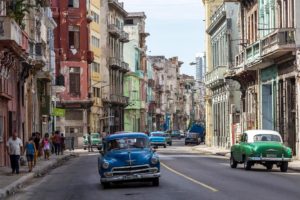 “Cuba has announced it will allow private businesses to operate in most industries, in what is a major reform to its state-controlled economy,” BBC reported on Saturday, February 6, 2021. BBC‘s correspondent in Cuba says “the step essentially opens up almost all economic activity on the island to some form of private enterprise.”
“Cuba has announced it will allow private businesses to operate in most industries, in what is a major reform to its state-controlled economy,” BBC reported on Saturday, February 6, 2021. BBC‘s correspondent in Cuba says “the step essentially opens up almost all economic activity on the island to some form of private enterprise.”
Cuba’s labor minister says this will “help free the productive forces” of the private sector. Boy, that sure sounds like … wait for it … capitalism. But most private enterprise there now are small family businesses, and Cuba isn’t on the verge of becoming an industrial behemoth.
“The communist country’s economy has been hit hard by the pandemic and US sanctions introduced by the Trump administration,” BBC said, adding, “Cubans have been facing shortages of basic goods.” Cuba has an economy? Haven’t shortages been a way of life there for decades?
The 780-mile-long island is ruled by Raul Castro, younger brother of Fidel Castro. But Raul, who turns 90 in June, is expected to retire this year. With the Castros gone from power, will Cuba now drift toward a market economy?
Read story here.
Photo: Havana is a mecca for 1950s cars. That’s the last time anybody there could afford a new car. A typical wage there is $19 US a month, although housing, food, education, and medical care are provided by the government.
With limited hope of economic assistance from Russia or China the Cuban regime has little choice. [The comment has been edited.]
They could choose continued economic stagnation, which probably wouldn’t threaten the regime’s grip on power; it hasn’t for decades.